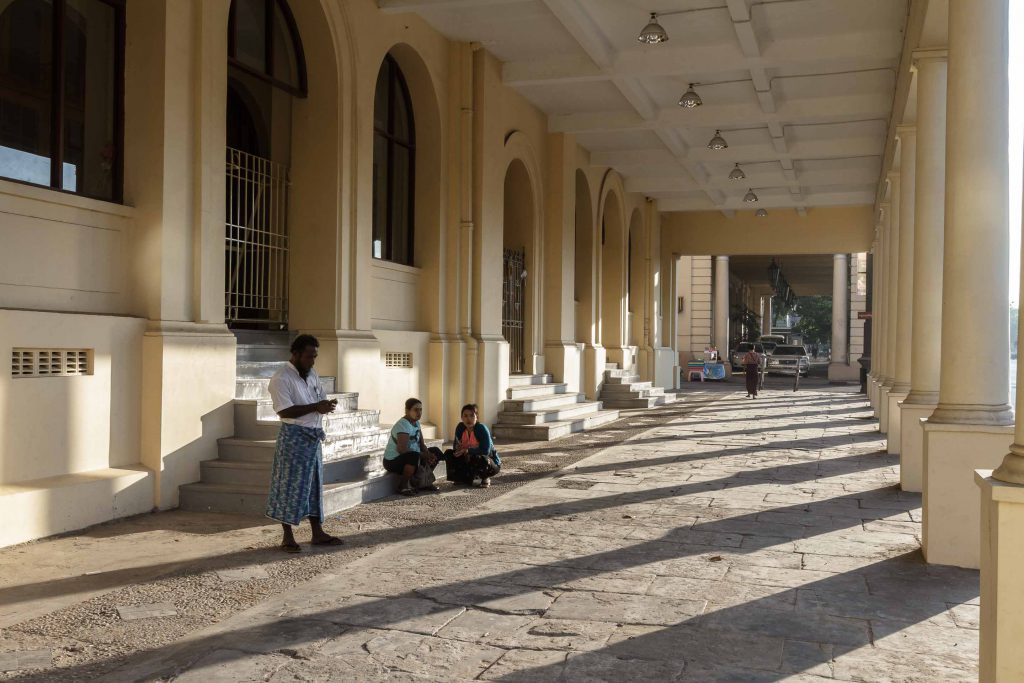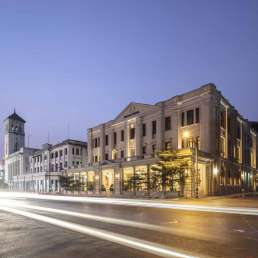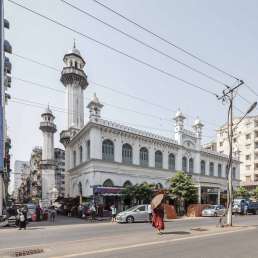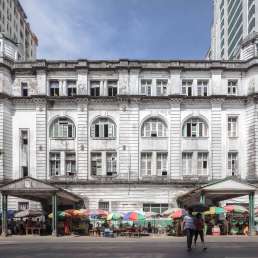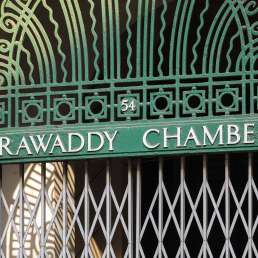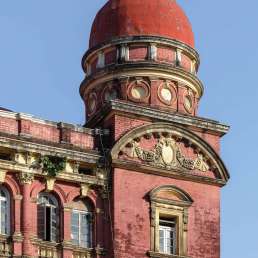Formerly: Bombay–Burmah Trading Corporation
Address: 104 Strand Road
Year built: 1920s
Architect: Unknown
Besides rice, the grand prize of colonising Burma was teak, a tropical hardwood endemic to South and Southeast Asia. The most successful company in the trade was the Bombay–Burmah Trading Corporation (BBTC). Its Burma headquarters once occupied this building on Strand Road. Built during the 1920s, it replaced an earlier two-storey building. Today’s building, slightly taller, has been stripped of its ornamentation. Yet the prominent and covered arcade does lend it some grandeur, and matches the adjacent Strand Hotel. So does a recent paint job of the first floor and arcade, imitating the Strand’s light ochre shade.
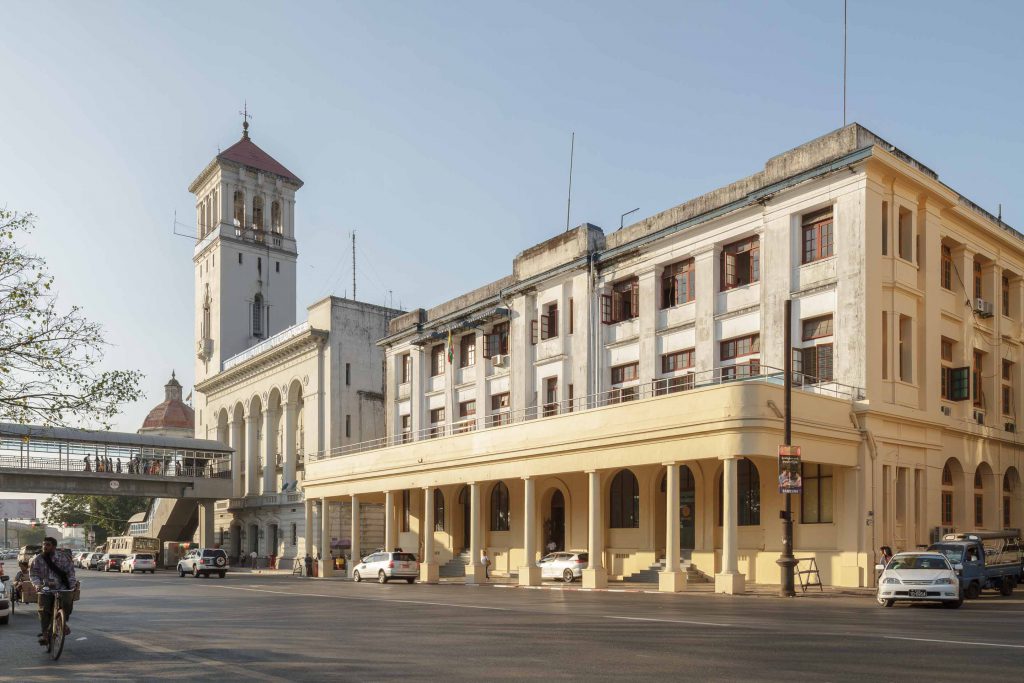
Teak production grew tenfold between 1859 and 1900, and more than doubled from then until the 1920s. Most teak extracted in Burma was destined for export to India, but was also sent to Europe where it was put to any conceivable use. Just before the onset of the Second World War, Burmese teak accounted for 85 per cent of world teak exports. The cultivation and extraction was mainly undertaken by five European firms, led by BBTC. The company was founded as the Burma branch of Wallace Brothers, Scottish merchants with their roots in Edinburgh. In the 1860s, William Wallace secured a licence from Burmese King Mindon to extract timber in Upper Burma. A dispute over taxes gave the British a pretext to annex this part of the country in 1885. At times, the income derived from taxing Burmese teak accounted for a sizeable part of all colonial income from British India. Teak camps depended in large part on timber elephants and their skilled handlers. They also required the right level of rainfall to feed the small tributaries of the country’s larger rivers, for these were the main transport arteries.
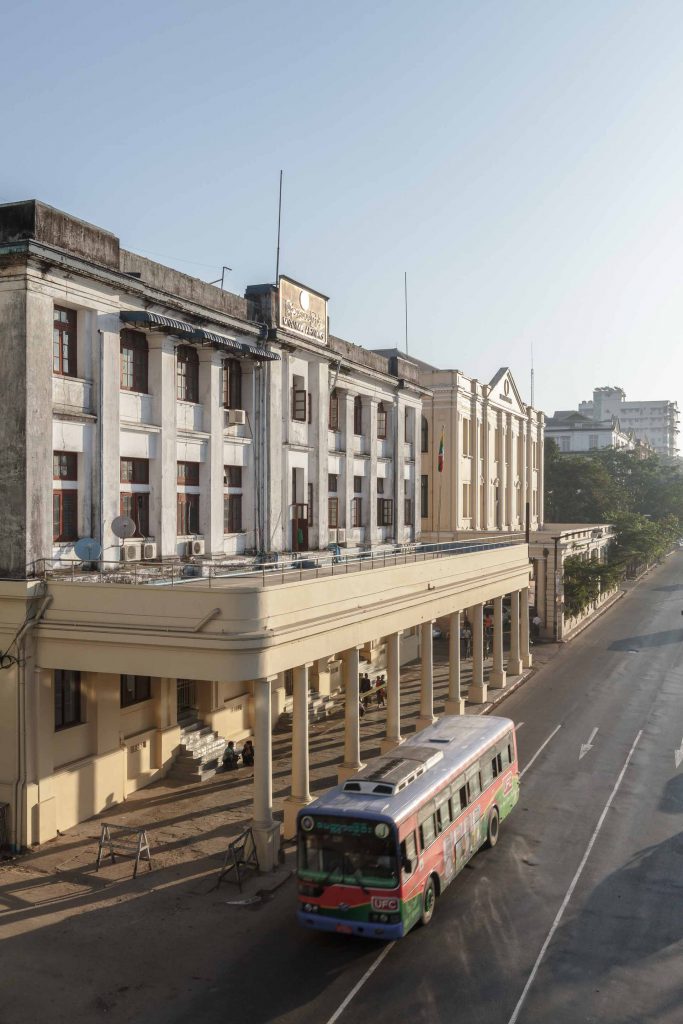
BBTC was nationalised after independence in 1948. The company still exists to this day and is listed on the Bombay Stock Exchange. Despite its name, it no longer operates in Myanmar. During the 1950s, Union of Burma Airways took over the old BBTC building. As the nation’s flag carrier, it mainly operated domestic routes and connected provincial towns with Yangon; some international routes, to Bangkok and Singapore, were maintained throughout the years. The international network was taken over by Myanmar Airways International (MAI) several years ago. MAI is a wholly-owned subsidiary of Kanbawza Group, a conglomerate with close relations to the former military regime. It regularly adds more international destinations. But domestic carriers compete with an ever-increasing number of foreign airlines flying to the country.
